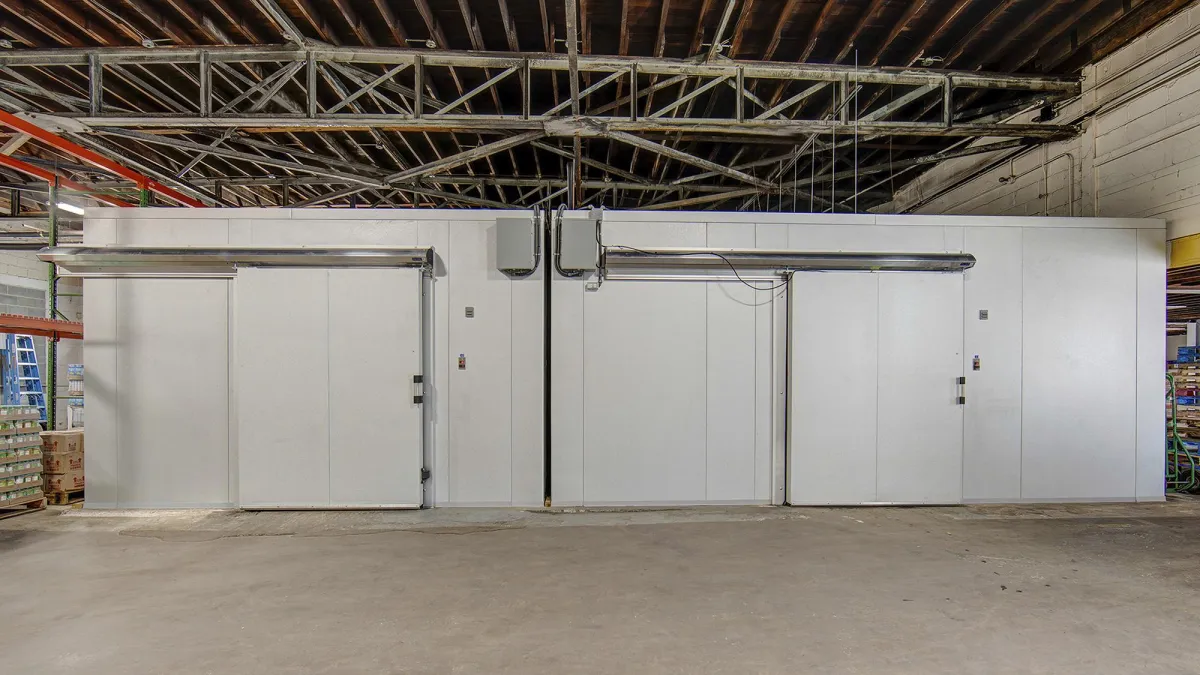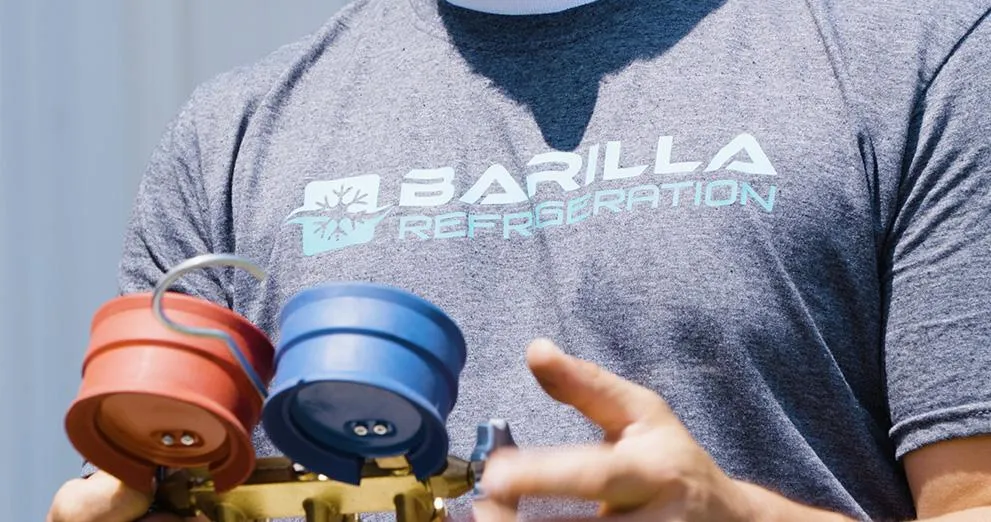We provide top-of-the-line refrigeration solutions
The solutions that cater to your specific needs, whether you're in the food and beverage industry or any other business that requires reliable refrigeration.
We provide top-of-the-line refrigeration solutions
The solutions that cater to your specific needs, whether you're in the food and beverage industry or any other business that requires reliable refrigeration.
A Reputation Built on Integrity & Dependability
From a humble beginning to a third generation business. Founder, Andy Barilla, always believed that “If you always put the customer first, everything else will fall in line”. Since 1954, Barilla Refrigeration still attributes this simply philosophy to the success of the business.
Trusted Experts
Whether you use a large cooler or freezer for your company, make Barilla Refrigeration your top choice for any services you may require. Large or small, We bring our dedication to quality to each and everyone of our customers. Call us today to learn more about our commercial refrigeration services.
Commercial Refrigeration
Services
Let the experts at Barilla Refrigeration create a solution that matches your business needs. Our professionals will then see that the installation is completed smoothly and efficiently so that you can start using the new cooler or freezer right away.
A Reputation Built on Integrity And Dependability
From a humble beginning to a third generation business. Founder, Andy Barilla, always believed that “If you always put the customer first, everything else will fall in line”. Since 1954, Barilla Refrigeration still attributes this simply philosophy to the success of the business.
Our Commitment To Excellence
At Barilla Refrigeration, we understand that our own success is made possible by the success of our customers. We provide our customers with the refrigeration solutions needed to run their businesses efficiently. For over 60 years, our company prides itself on a reputation built on integrity and dependability. Whether purchasing a new commercial refrigeration system, ice cream machine, or receiving the necessary maintenance to get you back up and running, our team is dedicated to each and everyone of our clients.








How We Serve Our Customers

EQUIPMENT SALES
Walk-In Coolers and Freezers
Reach In Refrigerators and Freezers
Topping Tables
Ice Cream Machines
Slush Machines
Custard Machines

EQUIPMENT SERVICE
Consultation and Design
Removal of Existing Equipment
Installation of Coolers/Freezers
Diagnostics
Repairs
Emergency Service

TRAINING
We'll help you master the ins and outs of your equipment, and provide guidance on how to streamline your operations and optimize your business processes.
Since 1954, Our Name Has Been Our Reputation
“Amazing company who knows how to treat their customers right!”
Tom Lehman
Director at Saint Vincent DePaul
Food for Families
Our Work







OUR STORY
About Us
It all began with Andy Barilla, who started the business in 1954, originally serving as a territory operator selling equipment to Dari Delight. He quickly grew his original territory of Western PA and West Virginia into to 37 states, then serving as the Vice President for Dari Delight.
In 1982, Duane Barilla took over the family business shortly after earning his education in refrigeration.
Duane’s role expanded the company to now include both equipment sales and repair/servicing.
In 2014, Duane’s Son, Drew Barilla entered the business as the next generation.
Under Drew’s direction, the business has now expanded its capabilities to focus on providing equipment and service to customers in the walk-in cooler and freezer industry.
Throughout the years, we’ve never lost track of our roots and continue to provide top notch sales and service to each and everyone of our customers.
If you own or need a piece of equipment that gets cold, we are here to serve you!
Let's Make Something Great Together
Get In Touch
call us : 412-678-4700
2900 Walnut Street | McKeesport, PA 15132
About Us
Mon—Fri: 8:00AM–5:00PM
Saturday & Sunday: Closed
Emergency Services available 24/7

